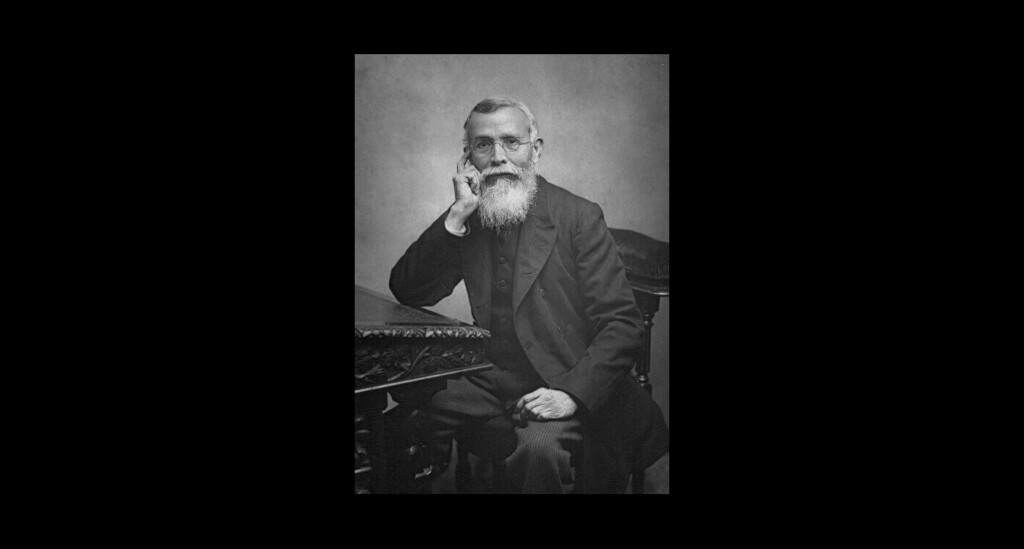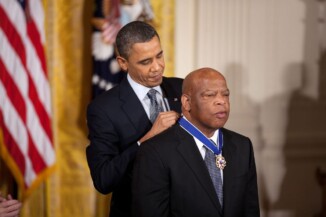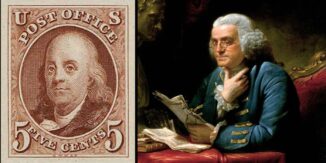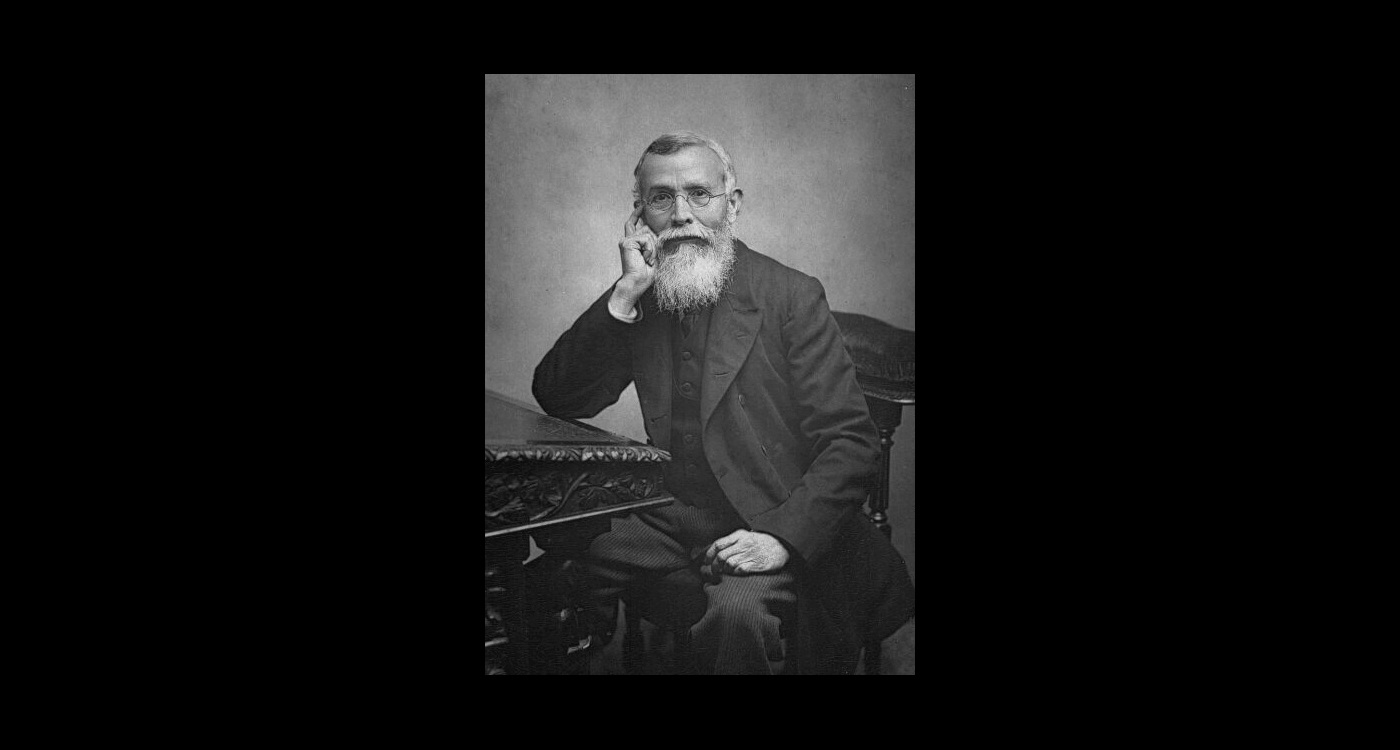133 years ago today, Dadabhai Naoroji was elected as the first Indian Member of Parliament in Britain. A merchant, scholar, writer, and political leader who served as a founding member of the Indian National Congress, Naoroji is particularly known for formulating the “drain theory,” which argued that economic exploitation under British rule led to the transfer of wealth from India to Britain. His work was influential among early nationalists and reformers, and he remained a key figure in shaping early Indian political thought. READ more about this pioneering freedom-fighter and some of his work as an MP… (1892)

When elected, Naoroji refused to take his oath of office on the Bible, as he was a Zoroastrian. He was allowed, if it can be believed, to use his own faith’s holiest codex instead. He was an effective communicator, which led to him being looked up to “as children look up to the father” according to Mahatma Gandhi.
As well as the obvious drive to speak on Indian-UK relations, he held similar sympathies for the Irish in their struggle at the time for independence that was nearing its violent, albeit successful conclusion. The Drain Theory of colonialize exploitation seems obvious to us now, but was important to set out in proper economic terms so as to diffuse the exact argumentation for its merits.
Naoroji estimated that between 200 and 300 million sterling was removed from the Indian economy every year through a combination of exploitative laws and economic incentives. Wealthy Indians and British officials were incentivized to take their money overseas for investments, as the stability and chance of return were higher in Britain than in India, choking off critical avenues of capital investment from improving the country. In addition, the government of India was forced to pay for the garrison of English soldiers that policed them. With India as a colonial subject, it could not attract immigrants, either those looking for labor or for entrepreneurial opportunity. His work on the subject Poverty and Un-British Rule in India was a strong influence for Indian nationalism.
In 2014, the British government introduced the Dadabhai Naoroji Awards, launched by then Deputy Prime Minister Nick Clegg, to honor contributions to UK-India relations.
MORE Good News on this Day:
- Carl Jung, who founded analytic psychology, was born in Switzerland (1875)
- Segregation in the US military and federal government was banned by order of President Harry Truman (1948)
- The Jackson Five signed with Motown Records, and went on to make history two years later as the first recording act ever to see their first 4 singles reach #1 on the Billboard charts— I Want You Back, ABC, The Love You Save, and I’ll Be There? (1968)
- Greek Prime Minister Constantinos Karamanlis formed the country’s first civil government after seven years of military rule (1974)
- The Americans with Disabilities Act became law, which was meant to provide equal access to public services by requiring public ramps for wheelchairs, wider doorways, but also defined disabilities as both physical and mental, not necessarily severe or permanent, medical conditions (1990)
- A lawsuit ended with Swiss banks awarding $1.25 billion to more than a half million plaintiffs who alleged the banks had hoarded money deposited by Holocaust victims (2000)
- Other Notable Birthdays: actress Sandra Bullock, 60 (Speed, The Blind Side), born in Washington, DC in 1964; actor and producer Jeremy Piven, 59 (Entourage, Serendipity, Mr. Selfridge), who grew up in Evanston, Illinois (1965)
7 years ago today, Civil Rights leader and Congressman John Lewis‘ body was carried across the Edmund Pettus Bridge in Selma with a military guard of honor, the same bridge where 55 years earlier he had been violently beaten by police for his participation in non-violent protest.

In 1965 Lewis organized some of the voter registration efforts during the 1965 Selma voting rights campaign and became nationally known during his prominent role in the Selma to Montgomery marches.
On March 7, 1965 – a day that would become known as “Bloody Sunday” – Lewis and fellow activist Hosea Williams led over 600 marchers across the Edmund Pettus Bridge in Selma, Alabama. At the end of the bridge and the city-county boundary, they were met by Alabama State Troopers who ordered them to disperse. When the marchers stopped to pray, the police discharged tear gas and mounted troopers charged the demonstrators, beating them with nightsticks.
Lewis’s death in July 2020 has given rise to support for renaming the historically significant Pettus bridge in Lewis’s honor, an idea previously floated years ago. While this hasn’t happened, many roads, educational buildings, and other infrastructure were renamed the John Lewis such-and-such. (2018)
97 years ago today, Stanley Kubrick was born. Widely considered one of the greatest filmmakers of all time, his films, almost all of which are adaptations of novels or short stories, cover a wide range of genres and are noted for their realism, dark humor, unique cinematography, extensive set designs, and evocative use of music. Indeed it would take one of the greatest filmmakers to create films in so many disparate genres, including horror/suspense (The Shining,) high science fiction (2001: A Space Odyssey,) and a proper war film (Full Metal Jacket).

Kubrick worked as a photographer as a young man, but moved into film alongside a rather decent collaborator—Kirk Douglas, with whom he partnered to make the war picture Paths of Glory and the historical epic Spartacus.
Kubrick’s work as a director was often cutting edge, with twenty to thirty retakes ordered as part of an attempt to achieve hyper-realism. As such it won its fair share of critics. But as is so often said, because it’s so often the case, the greatest artists often grow as time goes one, and movies such as the three mentioned above, plus, Barry Lyndon, A Clockwork Orange, and Dr. Strangelove, are considered some of the finest cinema ever created.
It was reported that Kubrick’s favorite review stated “the first half of Full Metal Jacket is brilliant: then it degrades into a masterpiece.” (1928)
Happy 82nd Birthday to Sir Mick Jagger of the Rolling Stones. Born in Kent, England to a teacher and hairdresser, he’s spent more than 50 years as one of the most influential frontmen in the history of rock and roll—and showed the world that old age doesn’t have to mean the end of “cool”. Famous for maintaining peak physical fitness long into his pensioner days, Jagger is a keen runner who prefers to pound out 8 miles a day if he has time.

“I always sang as a child,” Jagger once said. “I was one of those kids who just liked to sing. Some kids sing in choirs; others like to show off in front of the mirror.”
To wit, some estimates of Jagger’s sexually charged antics and running about on stage top 9 miles of movement (15km). His stage performance/persona has been compared with a male ballet dancer and how their masculine athleticism is often encased within a feminine costume of unitard and makeup.
Despite this, the late Stones drummer Charlie Watts always said that Jagger was the least egotistical member when it came time to do what was right for the band. David Bowie, who used to dream of being Mick Jagger, concurred with Watt’s perception of the frontman as more than the squawking, strutting playboy he seemed like on stage.
“I think Mick Jagger would be astounded and amazed if he realized that to many people he is not a sex symbol, but a mother image,” Bowie said in 1998. (1943)
230 years ago today, Benjamin Franklin was appointed the first US Postmaster General. It established a postal system that became the United States Post Office, a system that continues to operate today—delivering a letter anywhere in the US for 55 cents. He was responsible for all Post Offices—from Massachusetts to Georgia—and had authority to hire as many postmasters as he saw fit.
Franklin’s career in the postal service began in 1737 when the British Crown appointed him postmaster of their colony in Philadelphia. Thanks in part to Franklin’s efforts, the British Crown Post in North America registered its first profit in 1760, but he was fired 14 years later because England knew he was sympathetic to the idea of independence for the American colonies.
 Earlier in his life, Franklin, a prolific reader and printer of the newspaper The Pennsylvania Gazette, created and published Poor Richard’s Almanack, which was wildly successful and secured his fortune. Images of Ben Franklin and George Washington were both chosen to be on the first U.S. postage stamps, issued in 1847. (1775)
Earlier in his life, Franklin, a prolific reader and printer of the newspaper The Pennsylvania Gazette, created and published Poor Richard’s Almanack, which was wildly successful and secured his fortune. Images of Ben Franklin and George Washington were both chosen to be on the first U.S. postage stamps, issued in 1847. (1775)
Also, Happy 79th Birthday to Helen Mirren, the Brilliant British actress who was nominated for an Oscar three times before winning the Golden Statue, playing Queen Elizabeth II in the 2006 film The Queen. She also won a Tony Award for Best Actress in the stage performance of The Audience.
In 2019, Dame Helen starred in another royal role-playing Catherine the Great in an HBO series named after the 18th-century Russian empress, a formidable monarch who helped shape the future of Russian politics. Mirren always wanted to play the part—no wonder, because her father (who once played the viola with the London Philharmonic) was Russian-born, and her grandfather fought in the Imperial Russian Army. Mirren said of Catherine, “She rewrote the rules of governance by a woman, and succeeded to the extent of having the word Great attached to her name—Catherine the Great.”
 Helen’s other Academy Award nominations include The Madness of King George, Gosford Park, and The Last Station (in 2009). She won major awards for her role as a police detective on the British television series Prime Suspect (2006), and another Emmy and a Golden Globe for her performance in the miniseries Elizabeth I (2005).
Helen’s other Academy Award nominations include The Madness of King George, Gosford Park, and The Last Station (in 2009). She won major awards for her role as a police detective on the British television series Prime Suspect (2006), and another Emmy and a Golden Globe for her performance in the miniseries Elizabeth I (2005).

We also love her versatility and comic timing—on display in the role of a sexy senior spy wielding machine guns, opposite Bruce Willis, Morgan Freeman, and John Malkovich, in Red and Red 2. (1945)
SHARE the Milestones, Memories, and Music…


Leave a Reply